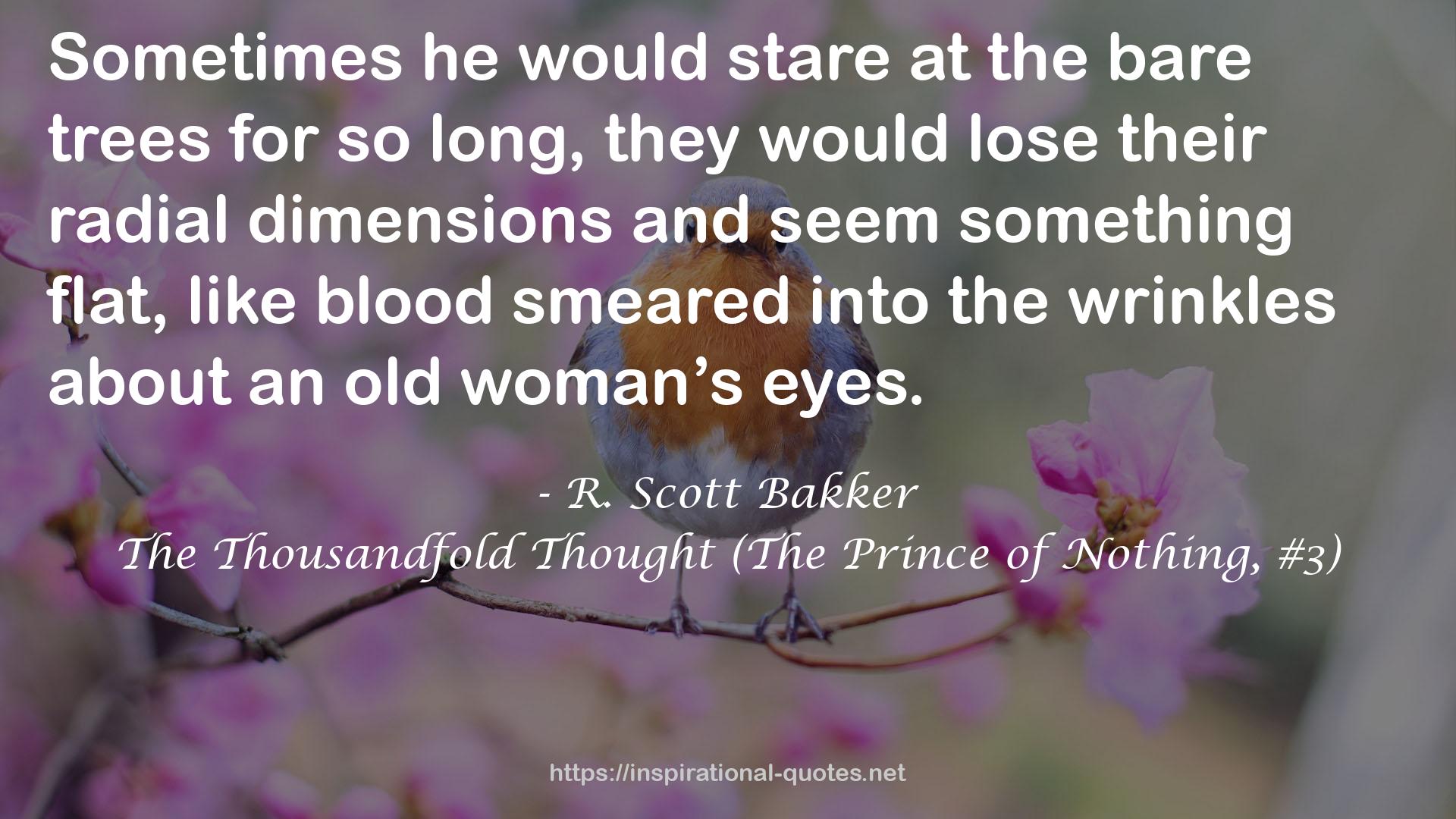32
" Screens of tumbling water, breaking the world beyond them into glittering lines and smeared shadows. Kellhus had ceased trying to penetrate them.
“Power,” Anasûrimbor Moënghus said, “is always power over. When an infant may be either, what is the difference between a Fanim and an Inrithi? Or between a Nansur and a Scylvendi? What could be so malleable in Men that anyone, split between circumstances, could be his own murderer?
“You learned this lesson quickly. You looked across Wilderness and you saw thousands upon thousands of them, their backs bent to the field, their legs spread to the ceiling, their mouths reciting scripture, their arms hammering steel … Thousands upon thousands of them, each one a small circle of repeating actions, each one a wheel in the great machine of nations …
“You understood that when men stop bowing, the emperor ceases to rule, that when the whips are thrown into the river, the slave ceases to serve. For an infant to be an emperor or a slave or a merchant or a whore or a general or whatever, those about him must act accordingly. And Men act as they believe.
“You saw them, in their thousands, spread across the world in great hierarchies, the actions of each exquisitely attuned to the expectations of others. The identity of Men, you discovered, was determined by the beliefs, the assumptions, of others. This is what makes them emperors or slaves … Not their gods. Not their blood.
“Nations live as Men act,” Moënghus said, his voice refracted through the ambient rush of waters. “Men act as they believe. And Men believe as they are conditioned. Since they are blind to their conditioning, they do not doubt their intuitions …”
Kellhus nodded in wary assent. “They believe absolutely,” he said. "
― R. Scott Bakker , The Thousandfold Thought (The Prince of Nothing, #3)
33
" All Kellhus could see of his father were two fingers and a thumb lying slack upon a bare thigh. The thumbnail gleamed.
“As Dûnyain,” the disembodied voice continued, “you had no choice. To command yourself, you had to master circumstance. And to master circumstance, you had to bind the actions of the worldborn to your will. You had to make limbs of nations. So you made their beliefs the object of your relentless scrutiny. It was axiomatic.
“You realized those truths that cut against the interests of the powerful were called lies, and that those lies that served those interests were called truths. And you understood that it had to be this way, since it is the function of belief, not the veracity, that preserved nations. Why call an emperor’s blood divine? Why tell slaves that suffering is grace? It is what beliefs do, the actions they license and prohibit, that is important. If men believed all blood was equal, the caste-nobility would be overthrown. If men believed all coin was oppression, the caste-merchants would be turned out.
“Nations tolerate only those beliefs that conserve the great system of interlocking actions that makes them possible. For the worldborn, you realized, truth is largely irrelevant. Why else would they all dwell in delusion?
“Your first decision was elementary. You claimed to be a member of the caste-nobility, a prince, knowing that, once you convinced some, you could demand that all act accordingly. And through this simple deception, you secured your independence. No other would command you, because they believed they had no right to command you.
“But how might you convince them of your right? One lie had made you their equal; what further lie might make you their master? "
― R. Scott Bakker , The Thousandfold Thought (The Prince of Nothing, #3)
34
" While waiting for the hidden machinery of messengers and secretaries to relay his request, Achamian wandered into an adjoining courtyard, struck by the other immensities that framed his present circumstance. Even if there were no Consult, no threat of the Second Apocalypse, he realized, nothing would be the same. Kellhus would change the world, not in the way of an Ajencis or a Triamis, but in the way of an Inri Sejenus.
This, Achamian realized, was Year One. A new age of Men. "
― R. Scott Bakker , The Thousandfold Thought (The Prince of Nothing, #3)

